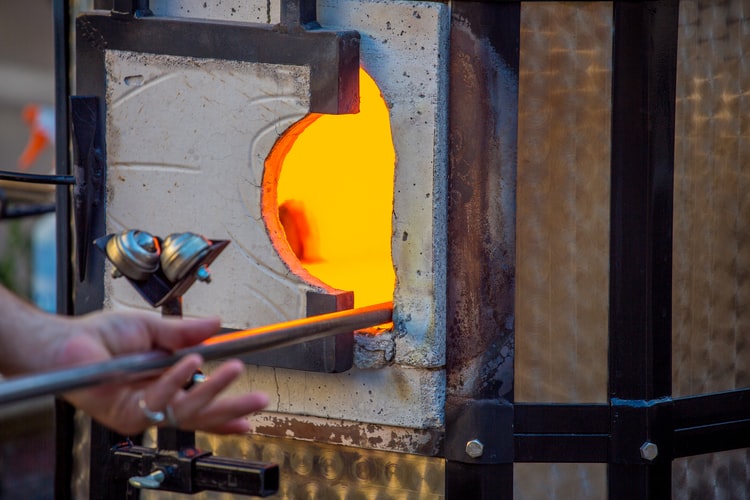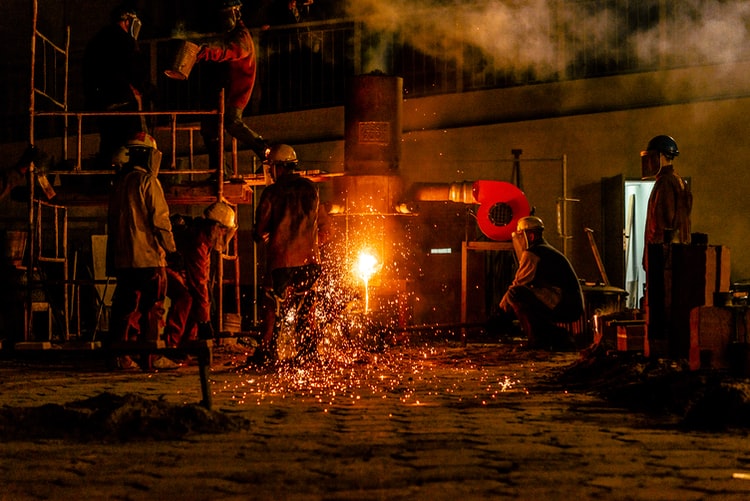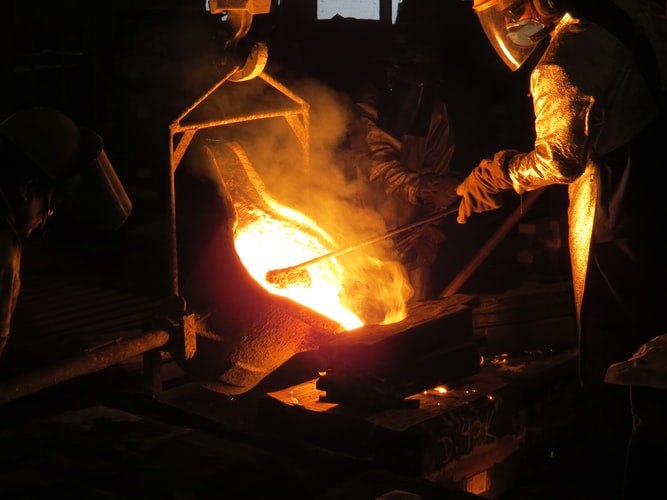As an industrial worker, you might work as a mechanic, foreman or a trade laborer who specializes in production.
Some of these workers will repair the machinery or they will operate the power and the heat systems. However, most of these people will be tasked with some of the more manual labor jobs, and they will work on the woodwork and the metalwork with some of the similar occupations. Millwrights, welders, smelters and molders all work as industrial workers in this field.
Carrying out the Chemical and the Mechanical Production
Some of the tasks that they might do include chemically enhancing the metals and refining the minerals with the intention of it having a more commercial purpose. In many of these circumstances, the workers will make use out of the machinery as a way of helping them to produce the materials on a big scale. Many of the industrial processes will generate a great deal of heat, which was one of the reasons that manufacturers added asbestos into the products. What it did later down the road, however, was to put these people at risk of serious asbestos-related diseases like asbestosis and cancer.
The Location and Products
Almost every company who had an industrial plant built before the 1970s might have been exposed to some of these asbestos-related products. For some situations, these products were construction related. For example, you saw it used with the floor and ceiling tiles.

A lot of the plants had extra types of products with asbestos-related materials in them like the insulation found in some of the equipment.
You could also find it in the gas valves, autoclaves and the hot engine heaters. These were all things that were there. It was often used as a way of avoiding overheating. For example, it might be used in an area like a smelting surface. In addition, many of the plants would contain asbestos-based insulation that had been sprayed on from the different brands like Spraycraft and Monokote.

These boards will often be covered with workbenches where the workers will use a heated tool. In fact, a lot of the industrial sites will have asbestos-related manufacturers who use these tools during operating. Sometimes the industrial workers will rip through asbestos paper, or they will pour asbestos-based compounds as they cast a mold.

Some of the most common products that you will run across like this include:
-
Pipe insulation
-
Pipe wrappings
-
Asbestos-based cement
-
Joint cement
-
Plastic
-
Vinyl sheet backings
Some of the laborers at these plants would also sometimes wear asbestos-based gear that could be harmful to their health. One of the problems with this substance is how it goes airborne, and from there, it will enter into their lungs. One of the previous welders talked about how he had worn gloves with a wool-ish kind of feel them. Some of the co-workers could recall using the protective products that had been made with asbestos-treated cotton.
Exposure within the Profession
Exposure while on the job has become a real risk for workers who have made use out of the power tools. For example, those who drill, score or grind through materials, it can release the asbestos-based carcinogens into the air. The responsibilities of this trade have been known to expose people to the hazards of these particles.

Forging metal with heat and hammers have been popular, and sometimes they will also cast liquid materials in it. After the molds had been set, they would be pried out of the casts and baked into an industrial oven. Next, the workers pour a molten metal into the casts, and this will form the prototype.

One of the biggest problems that would often face these industrial plants was how most of them had poor ventilation. As a result, the airborne fibers would circulate all through this work environment, and over an extended period of time, this put many people at risk for developing some of the most common diseases that come with it.
RAND did a research study that learned how 90 percent of the industrial companies in business today have been involved in some form of lawsuit related to asbestos-based products. In one of these cases, a lawsuit from a welder had been brought up against the Hobart Brothers Company. This was a company responsible for manufacturing asbestos-based welding rods, and they did this for almost 30 years. These rods were used as a way of welding the electrical arts to the metal fabrication company. He eventually died from mesothelioma a month after receiving the diagnosis.
If you or a loved one has been injured because of asbestos-related products, you should speak with a lawyer as soon as possible because you may be entitled to some compensation.
